Affairs: Security / The Caucasus
Making tracks
By plane, train and automobile, we take in the shifting allegiances within the Caucasus’s former-Soviet states.

A queue of trucks stretches from the Cildir-Aktas border crossing into the green mountains. This almost permanent bottleneck is a symptom of disputes that have left Cildir-Aktas as one of the few overland portals for goods travelling into the Caucasus. Wedged between Turkey, Russia and Iran, the region covers an area that is smaller than Sweden and sits at the heart of the old Silk Road. Yet today it is difficult to traverse by land. On one side of Cildir-Aktas is Turkey and on the other, where the modern road suddenly turns into pitted track, is Georgia. The trucks groan around corners and dodge potholes as they crank into gear.
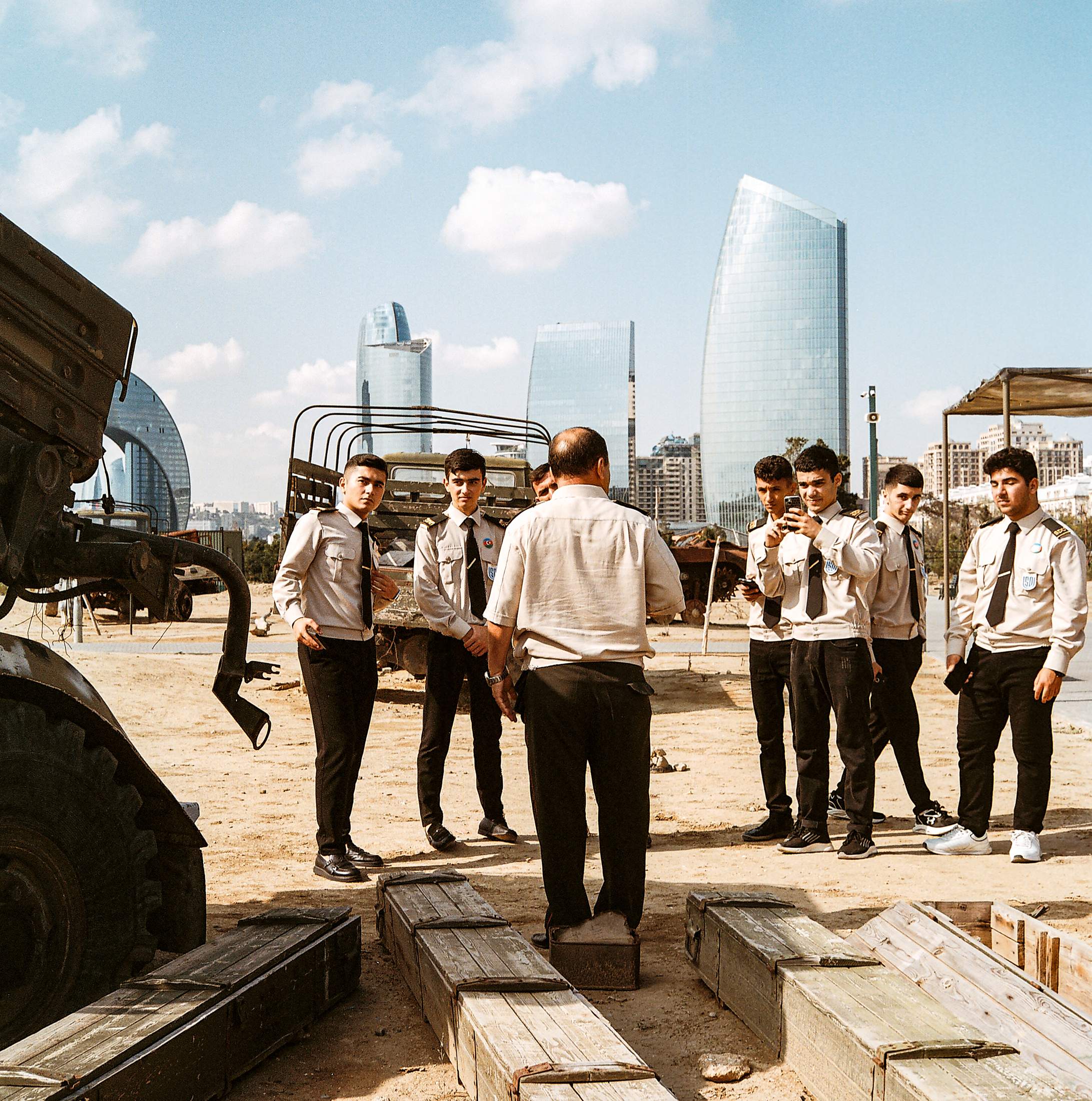
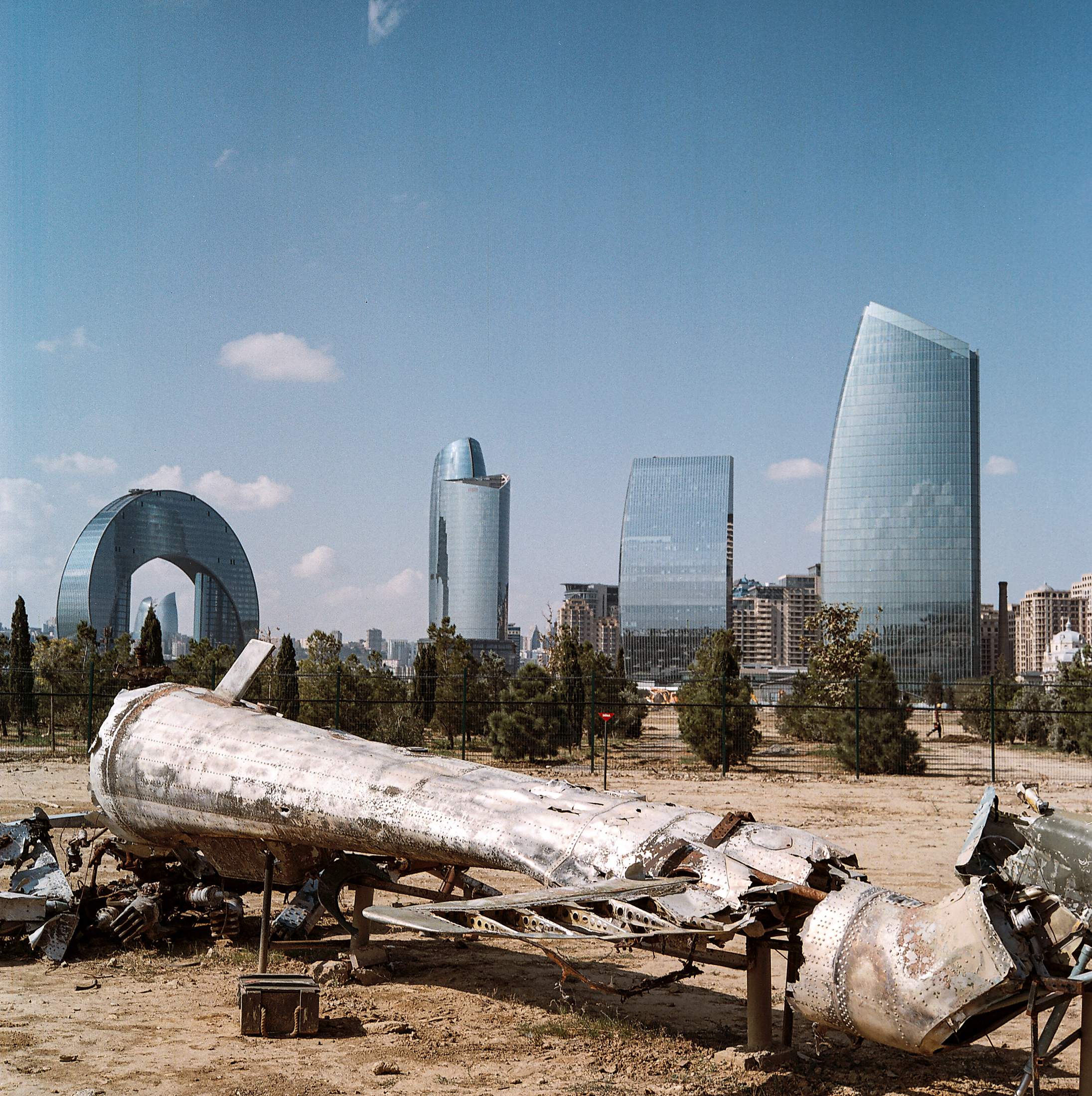
The three Caucasian countries – Georgia, Armenia and Azerbaijan – were once part of the Soviet Union and have often forged fraught relations with each other since it collapsed. Armenia and Azerbaijan have long been embroiled in a territorial conflict and there’s no way to travel directly between them. Turkey, a staunch ally of the latter, closed its land border with Armenia in solidarity. To travel from Turkey to Armenia, you have to pass through Cildir-Aktas and head 25km inside Georgia, before doglegging south across the border. Since 2022, EU sanctions over the war in Ukraine have put extra pressure on the crossing: it is now also one of the few land routes through which goods can travel by land to Russia.
In clear view of the border gate, the Baku-Tbilisi-Kars (btk) railway line cuts a parallel path. The line, which was first touted by Ankara in 1993, links Kars in eastern Turkey to Georgia’s capital, Tbilisi, and then to Azerbaijan’s, Baku, making a wide loop north to bypass Armenia. It opened for cargo in 2017 and is part of a route that can bring goods from China into the EU in 12 days.
In 2018, Azerbaijan Railways announced that a passenger train would begin service on the route. The first stretch, heading east from Kars to Tbilisi, passes through mountains and winds around lakes and provincial towns. From Tbilisi, the line turns southeast to Baku; a 12-hour sleeper train will deliver you to its grand 19th-century station at 08.00. In May 2019, Turkish and Azerbaijani national railways announced that the journey from Ankara to Baku would take about 40 hours and cost between €50 and €120.

But when monocle set out to travel on the btk, we discovered that we could not. Newly built stations are listed on booking sites but no service times appear. Online, enthusiasts ask when the trains will come. We eventually discovered that the only way to make the trip by public transport involved a long bus ride, a stop-off in Batumi on Georgia’s Black Sea coast (120km in the wrong direction), a train to Tbilisi and an expensive one-hour flight to Baku. No part of the passenger line from Kars to Tbilisi is working and Azerbaijan hasn’t opened its land borders since 2020. So we journeyed by foot, car, train and plane – a trip that took three days and served as a stark lesson on the region’s shifting relations.
stop one
Akhalkalaki, Georgia
Our train crosses the border from Turkey into Georgia and stops for passport control at Akhalkalaki, an ethnic Armenian enclave. The Russian army was the biggest employer here until 2007, when it closed its base amid worsening relations between Moscow and Tbilisi. Many jobs went with it and today the town’s poorest residents occupy decrepit former military housing. Of the three Caucasus nations, Armenia has maintained the closest ties with Russia. Many in Akhalkalaki have Armenian passports alongside their Georgian ones so that they can work in Russia and send back remittances. But recent events in another Armenian enclave 300km from Akhalkalaki have shifted the regional power balance.
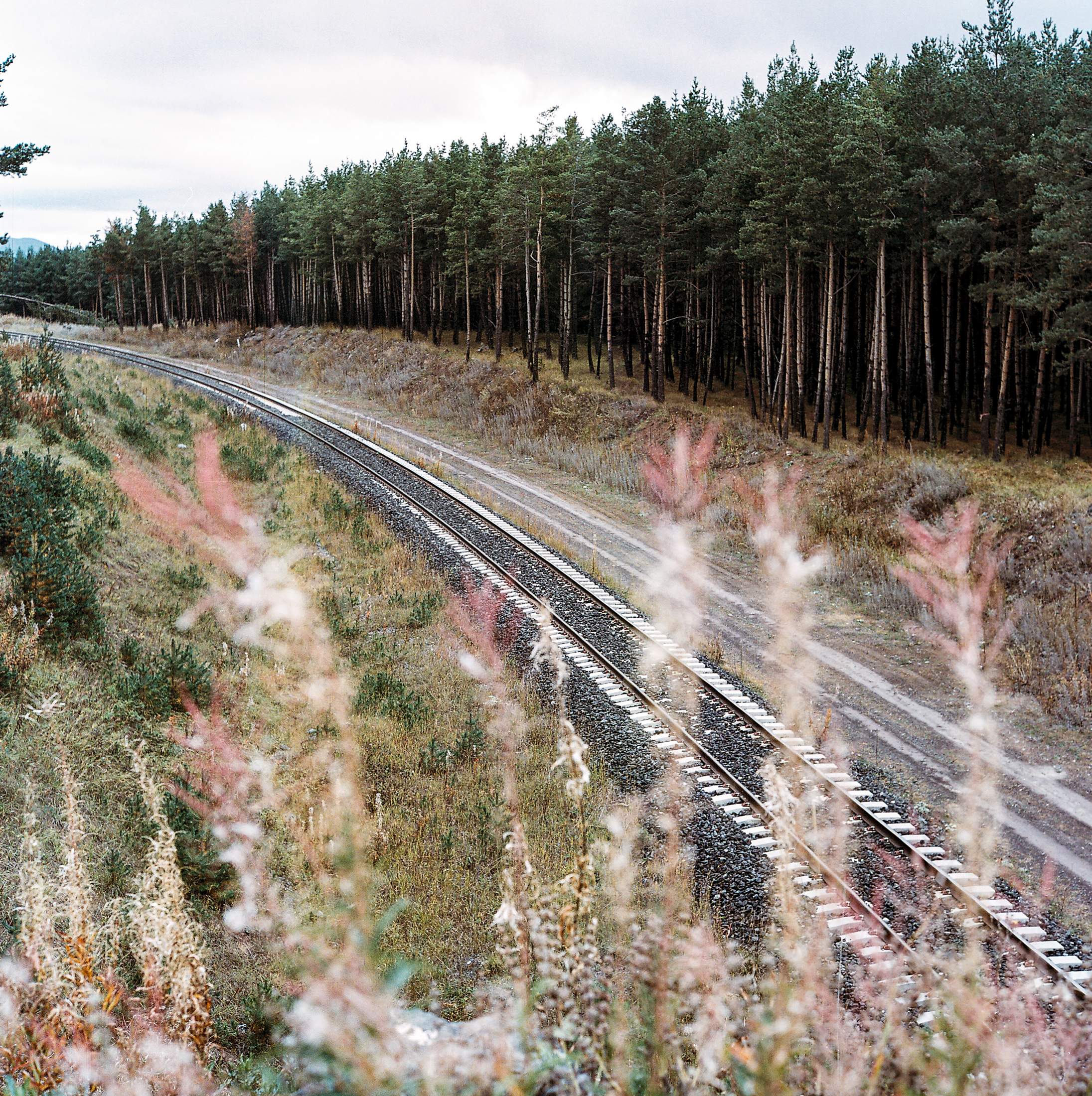
Last September, Azerbaijan seized full control of the disputed Nagorno-Karabakh region, displacing some 120,000 ethnic Armenians. Russia, the guarantor of a ceasefire in the territory, had given tacit approval to Baku. Armenia has turned against Vladimir Putin as a result and, in October, voted to recognise the International Criminal Court. Russia’s president, who has been indicted for war crimes in Ukraine, now risks arrest if he steps foot in Armenia. The sentiment has rippled out to Akhalkalaki.
“Attitudes in Armenia are changing. People don’t like Russian politics but they are economically dependent on the country”
“Russia is weak now,” says Rima Gharibyan, director of the Javakheti Information Centre, a local news site. “Attitudes in Armenia are changing. People don’t like Russian politics but they are economically dependent on the country. If Moscow decides that we’re not a friendly country, it could expel Armenian workers, like it did to Georgians in 2008.”
The btk was supposed to bring Akhalkalaki an economic boost. Its international station, a curved structure designed by German architect Jürgen Mayer, was completed in 2018 but never opened. Work on the line was beset with delays and locals employed on the project protested after they were not paid for months. Businesses in Akhalkalaki still can’t receive deliveries from the station, even though the cargo line is working. Instead, they have to collect them from Tbilisi, 180km away.
Some believe that the passenger trains will never come. “We have asked Georgian Railway about them but no one knows,” says Gharibyan. “Georgia doesn’t feel that it owns this project – it’s between Turkey and Azerbaijan. We just happen to be in the middle.”
stop two
Tbilisi, Georgia
There is, at least, a new road from Akhalkalaki to Tbilisi. It opened in 2010 and runs alongside the btk, cutting through mountains where shepherds herd sheep over the tracks. This journey took almost all day on the old roads; now it can be completed in three hours. By lunchtime, monocle is in Tbilisi. Georgia’s capital is the cultural heart of the Caucasus: a hub for digital nomads, a hipster food destination and a refuge for Russians escaping Putin’s mobilisation. The Georgian government estimates that there are about 112,000 Russians in the country but Tbilisi’s streets are daubed with anti-Russian graffiti. It’s the most visible sign of the growing disconnect between the country’s people and its political elite.
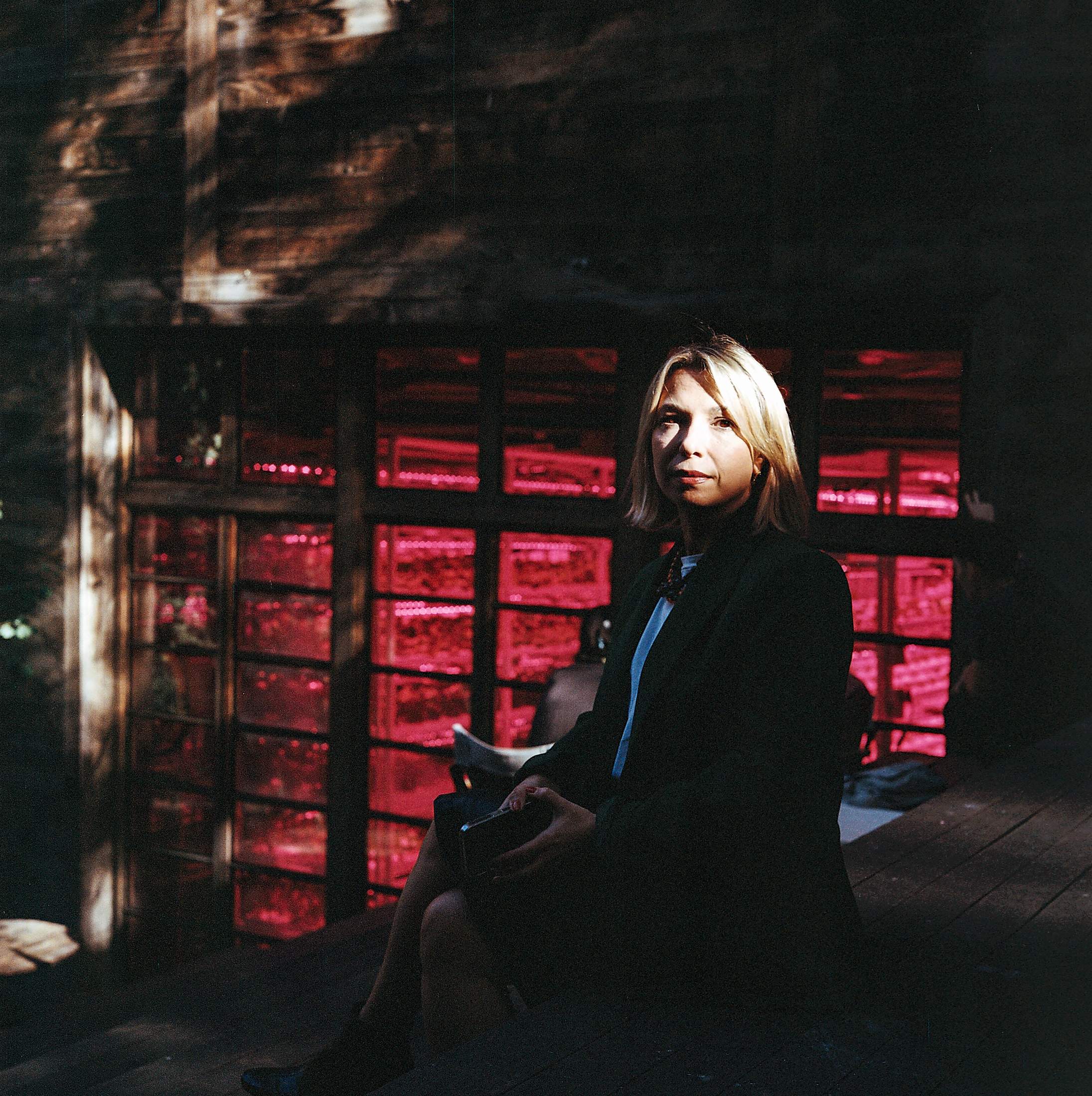
We meet former public defender Nino Lomjaria in Stamba, a Soviet-era printworks that now houses a luxury hotel, gallery, restaurant and co-working space. Young creatives, including some Russians, sip coffee in the central courtyard. But the urban vibe belies Georgia’s worrying trajectory. “The situation is changing so rapidly,” says Lomjaria. “A year ago, I wouldn’t have imagined that we wouldbe in this situation, even in my nightmares.” She stepped down from her state position in December 2022. Georgia, once the Caucasian nation moving westwards fastest, has taken an anti-democratic turn since 2018. Its pro-Russian ruling party, Georgian Dream, has declined to join sanctions on Moscow. Even as Georgia moves through the process of joining the EU, its government is throwing stumbling blocks in its own path. The party hopes to cling to power in October’s general elections by claiming that Nato and the EU are trying to drag Georgia into Ukraine’s war.
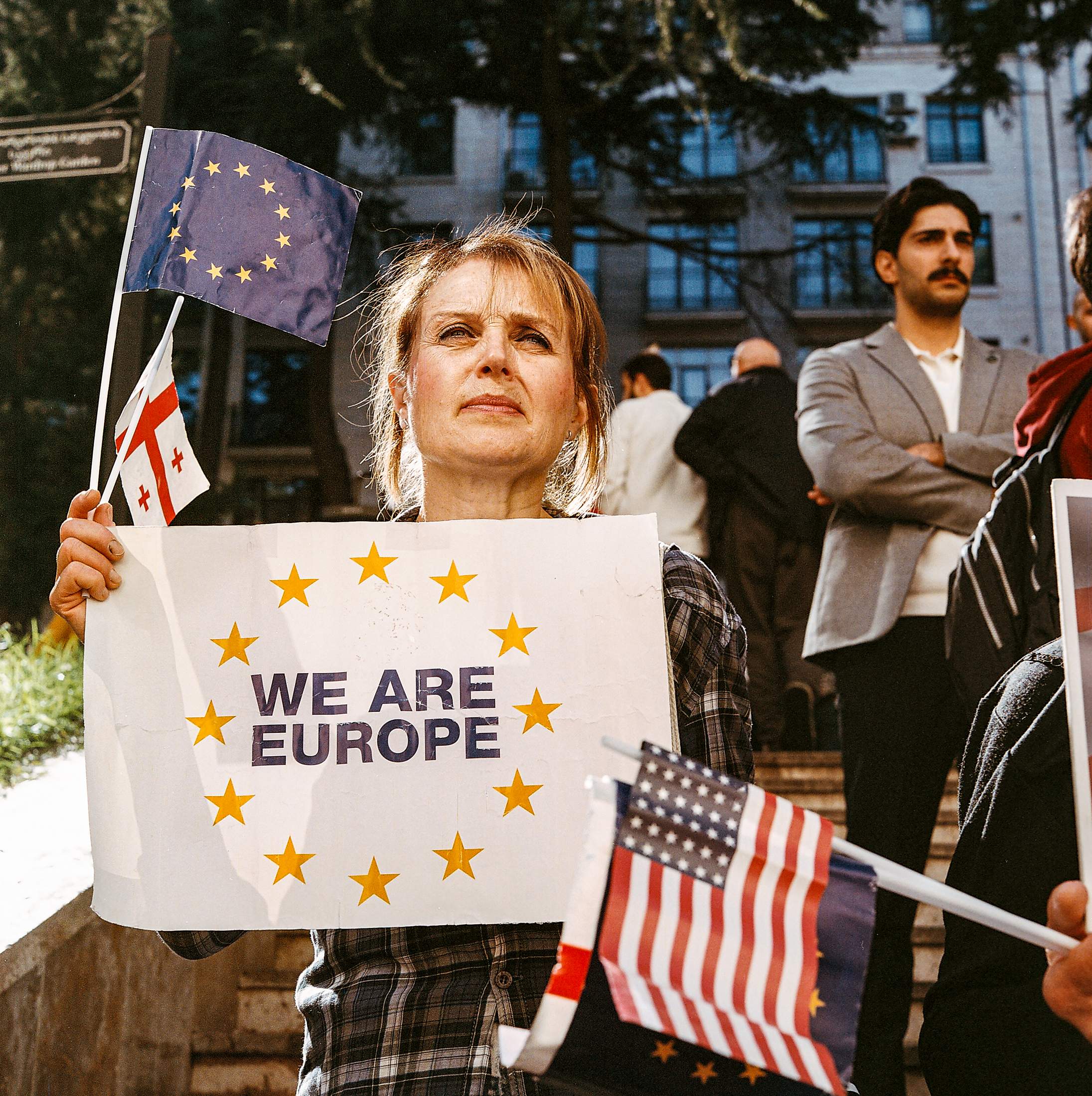
“The fear of war is effective because it’s a recent trauma,” says Dachi Imedadze, a member of the Shame Movement, a pro-European youth organisation founded in 2019. “According to the government’s propaganda, it is the peacekeeper and the opposition is trying to provoke war with Russia.” In 2021 the Shame Movement’s then offices were attacked by a right-wing mob. Its new base, in a block of flats in the Tbilisi Hills, is decorated with anti-Putin paraphernalia: posters and stickers declaring, “Never back to the ussr”.
But relations between Tbilisi and Moscow have warmed over the past year. The Kremlin has lifted its ban on direct flights to and from Georgia and a Russian cruise ship recently docked in Batumi. Last year thousands of Georgians demonstrated against a proposed law that would have allowed the government to crack down on ngos and journalists that it accused of being “foreign agents” (almost identical legislation was passed in Russia in December 2022). Though the bill was dropped, many fear that the government will try again.
In September, Lomjaria launched a civil society platform, Georgia’s European Orbit, hoping to work outside party politics to keep Georgia on its westward path. “This year’s elections are a referendum on Europe or Russia,” she says. “My fear is that if we don’t get EU status, we might stay in the Russian orbit.”
stop three
Baku, Azerbaijan
Our flight from Tbilisi lands at Baku Airport’s domestic terminal. Here the conflict in Nagorno-Karabakh is inescapable. The boulevards into the city are lined with flags. In a park between the Caspian Sea and a shopping centre, Armenian military hardware seized from the conflict is on display: burnt-out tanks and ancient howitzers, all Soviet-made. Baku’s victory expanded its reach and won it clout in its neighbourhood and beyond. Until recently, Armenia enjoyed the support of both Iran and Russia but the totality of its defeat has shifted the realpolitikal equation in the Caucasus.

In Baku’s Synagogue of Ashkenazi Jews, a haven of books, domes and velvet in the ever-developing city centre, Rabbi Shneor Segal reflects on his adopted country’s unique foreign policy. Segal, an Israeli, came here 13 years ago. Azerbaijan is one of the few Muslim nations to maintain warm relations with Israel, a friendship based on trade and security co-operation (Israeli weapons helped Baku win in Nagorno-Karabakh). Azerbaijan’s Jewish community numbers about 25,000 people. “In Baku, you can see a visitor from Israel next to one from Iran,” says Segal.
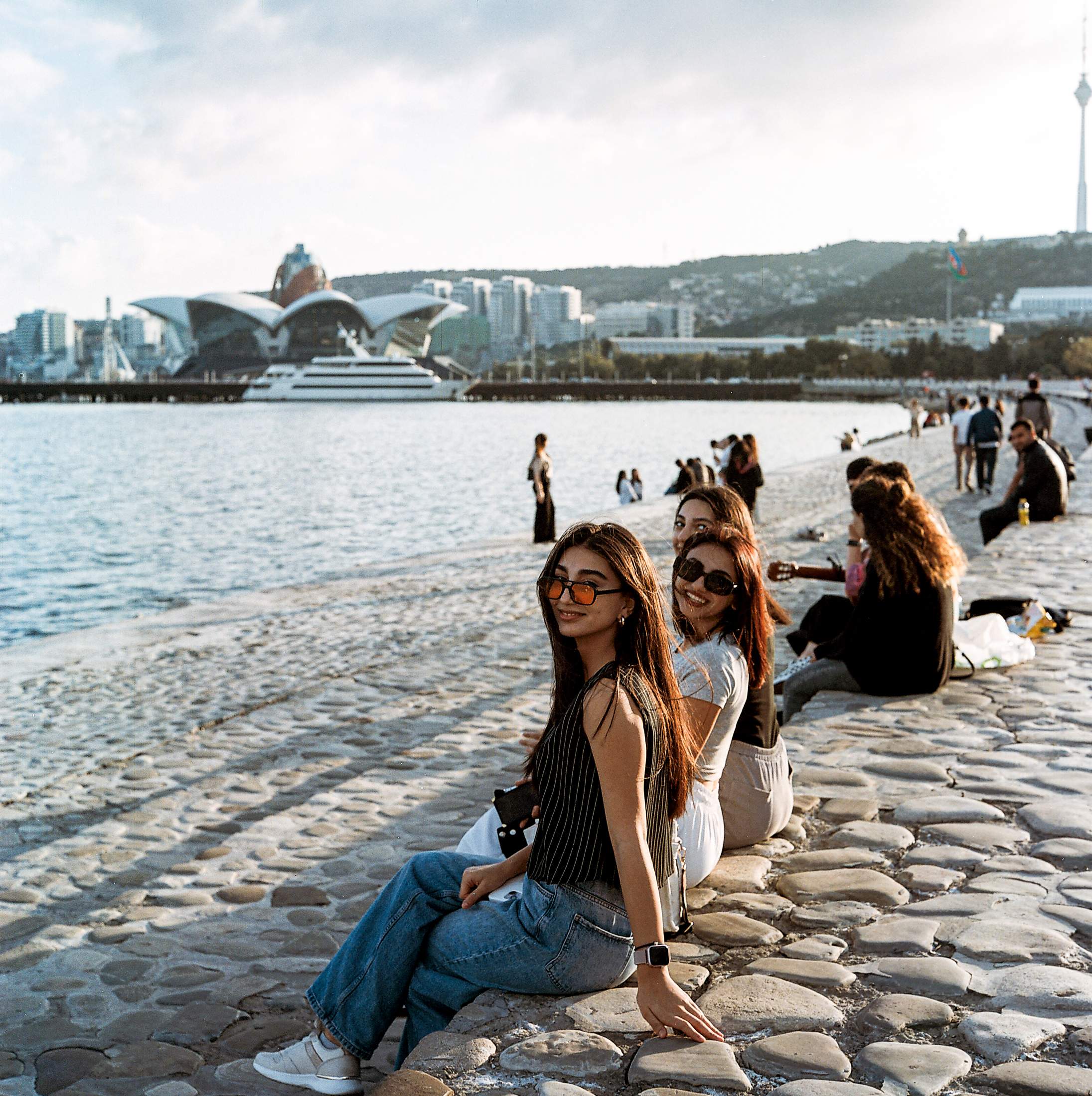
Azerbaijan has practical aims for Nagorno-Karabakh. The newly won area provides the country with a far more direct route from Baku to the border with Turkey that is half the length of the btk’s loop. Baku has started building a railway and a road leading westwards to Nakhchivan, an exclave of Azerbaijan next to Turkey. But a 40km-strip of Armenian territory blocks the route, a barrier known as the Zangezur corridor. Baku is in negotiations with Tehran to skirt south into Iran and sidestep the stretch.
Officials in Baku insist that this new railway will not render the btk obsolete. Instead, it will add to a growing network that reflects the region’s evolving connections. In May 2023, Russia and Iran signed a deal to build a railway from Astara, on the Iranian-Azerbaijani border, to Rasht, on the Persian Gulf. It will be part of a route that will eventually stretch from St Petersburg to Mumbai, crossing both Armenia and Azerbaijan on the way. Further south, there are plans to restore the old line from Mosul in Iraq to Gaziantep in Turkey. If the btk ever begins service, it will add to the Caucasus’s growing importance as a link between Europe and Asia, and between Russia, Turkey and Iran. These relationships have the potential to define the future of the region and the world. Many leaders, especially those in the West, will be hoping that these planned railways hit the buffers. —


